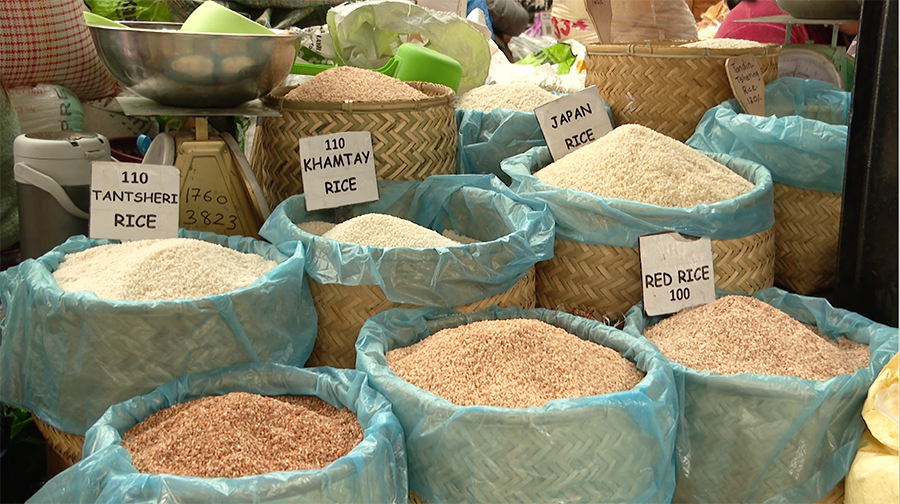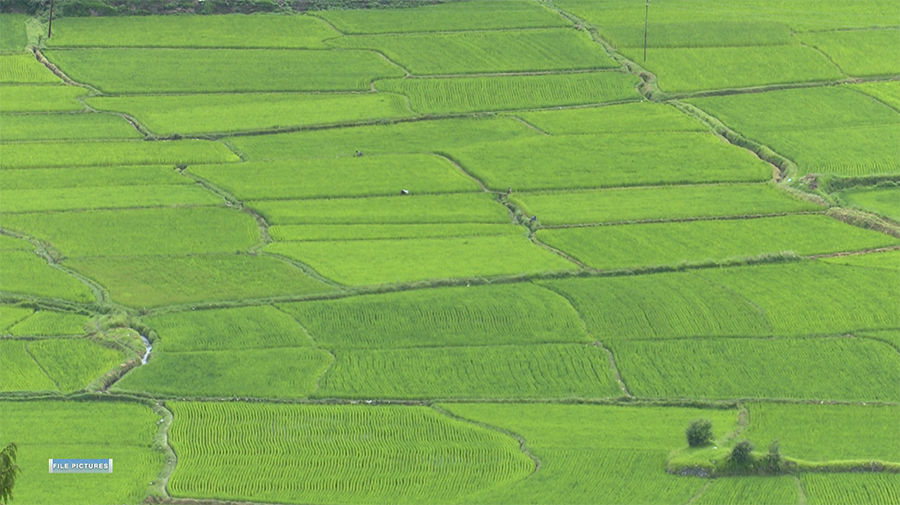 Rice production in the country has been on the decline due to high labour demands, low financial returns, and market challenges. Many farmers struggle to sell their harvest at competitive prices, leading to financial losses and reduced interest in cultivation. In a bid to revive declining rice production, the Farm Machinery Corporation Limited will be making all 20 rice varieties available in Food Corporation of Bhutan’s outlets from the end of this year. The corporation has been buying paddy from the farmers directly to ensure better market access and promote self-sufficiency in rice cultivation.
Rice production in the country has been on the decline due to high labour demands, low financial returns, and market challenges. Many farmers struggle to sell their harvest at competitive prices, leading to financial losses and reduced interest in cultivation. In a bid to revive declining rice production, the Farm Machinery Corporation Limited will be making all 20 rice varieties available in Food Corporation of Bhutan’s outlets from the end of this year. The corporation has been buying paddy from the farmers directly to ensure better market access and promote self-sufficiency in rice cultivation.
 From Punakha’s Tantsheri to Radhi’s Sorbang and Sarpang’s Mashino, the corporation plans to make these 20 rice varieties available in FCB outlets.
From Punakha’s Tantsheri to Radhi’s Sorbang and Sarpang’s Mashino, the corporation plans to make these 20 rice varieties available in FCB outlets.
These are some of the most popular rice varieties cultivated across the country, each reflecting the unique agro-climatic conditions and farming traditions of its respective district.
With a diverse range of flavors, textures, and nutritional benefits, showcasing and selling these varieties is expected to provide valuable market insights.
This will help FMCL determine which rice types to prioritise for aggregation and large-scale distribution.
Wangda Dukpa, FMCL CEO said “The third objective is doing this, we will collect grains from the farmers in bulk. So, we also pay on the spot in bulk, that way farmers will benefit because they will continue to have a stable market for their produce. The fourth objective is, so when we create a stable market for the farmers, automatically farmers will be encouraged to continue production, so which eventually will contribute towards national food security. “
 The FMCL has procured more than 350 metric tonnes of paddy last year from 12 districts.
The FMCL has procured more than 350 metric tonnes of paddy last year from 12 districts.
The FMCL then mills the rice in their go-down and sells it to the FCB for retailing tasks.
The CEO said “This year, in 2025, FCBL will sell six popular varieties from the harvest of 2024. So by next year, after collecting market signal from today’s launching program, FMCL will prioritize which varieties to collect, and based on that, again by next year, more and more varieties will be available through FCBL outlet.”
Rice is also one of the six crops covered under the Price Guarantee Scheme of the Economic Stimulus Programme (ESP).
This scheme ensures that farmers receive fair pricing for their produce, reducing financial risks and encouraging continued rice cultivation.
According to the Integrated Agriculture and Livestock Census of Bhutan 2023, a total of 40,500 metric tonnes of irrigated paddy was harvested, which is a decrease of 200 metric tonnes compared to the previous year.
Punakha, Paro and Wangdue Phodrang districts accounted for the highest production of irrigated paddy.
Samten Dolkar







